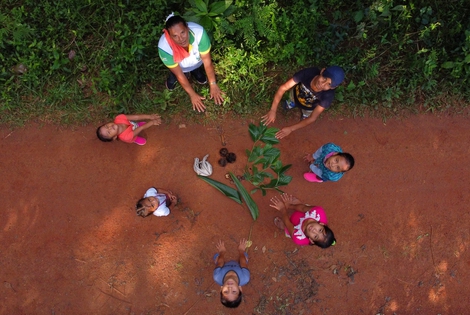
Meet Gokul Subedi and Prakriti Mainali, the founders of two humanitarian organisations with one shared goal: to improve the lives of the most vulnerable and disadvantaged members of Nepalese society.
Families, regardless of their structure, are the cornerstone of society, and today we celebrate them.
Despite politicians and the catholic morals often abuse the term “family”, its meaning is simple and deep at the same time, and it varies depending on social, historical, and cultural contexts.
Family is a social structure characterised by mutual love and care among its components, regardless of components’ structure, gender, degree of kinship, and race.
The multiplicity of family types has been recognised by the United Nations that proclaimed the International Day of Families, established in 1993, which is observed on the 15th of May every year. The International Day aims to promote awareness of issues relating to families and to increase knowledge of the social, economic and demographic processes affecting families.
“As we strive to usher in a more sustainable future, achieve the Millennium Development Goals, shape a new development agenda and combat climate change, let us mobilize the world’s families,” said the UN Secretary-General Ban Ki-Moon.
The 2015 edition is dedicated to gender equality and children’s rights in contemporary families, and it aims to highlight the importance of prevention of family violence.
Families are an integral part of society, and they promulgate values and culture. It is thus necessary offering them the adequate support, taking into account their needs into development policies, considering their condition in addressing conflicts, and advocating for the equal treatment of all families, regardless of their structure, because family is where there is love, and that’s enough.
Siamo anche su WhatsApp. Segui il canale ufficiale LifeGate per restare aggiornata, aggiornato sulle ultime notizie e sulle nostre attività.
![]()
Quest'opera è distribuita con Licenza Creative Commons Attribuzione - Non commerciale - Non opere derivate 4.0 Internazionale.
Meet Gokul Subedi and Prakriti Mainali, the founders of two humanitarian organisations with one shared goal: to improve the lives of the most vulnerable and disadvantaged members of Nepalese society.
The Amazon became an alternative classroom during the pandemic. Now, the educational forest in Batraja, Bolivia, lives on to teach children and adults the value of nature.
The tribes of the Lower Omo Valley in Ethiopia live in close contact with nature and the river they depend on. But their ancestral ways of life are being threatened by the impacts of a mega-dam, climate change and a booming tourism industry.
Antinatalism advocates for people to have fewer or no children and is bringing the issue of overpopulation into the environmental debate. A definition of this philosophy as well as the arguments for and criticisms against it.
Education Minister Lorenzo Fioramonti has announced that the topics of climate change and global warming will soon be taught as subjects in Italian schools.
The World Day Against Child Labour aims to combat this phenomenon, which affects a quarter of all children worldwide.
Despite the abuses of patriarchy, women are rising up to improve their conditions. The origins of International Women’s Day and why we celebrate it.
Secondo l’Unicef sono almeno 200 milioni le donne che hanno subito mutilazioni genitali femminili, con drammatiche conseguenze fisiche e psicologiche.
Access to basic sanitation helps combat malnutrition, violence and the spread of life-threatening diseases. For World Toilet Day, Action Against Hunger tells us about its importance for sustainable development.







